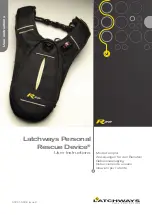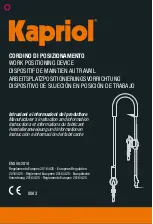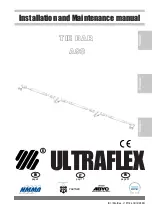
When servicing your marker:
• Make sure your hopper is removed from the DM9.
• Make sure there are no paintballs in the breech of the DM9.
• Always remove the air supply and relieve all gas pressure in the DM9 before
disassembly.
• When using the marker in temperatures below 50° Fahrenheit it may be
necessary to lube the FUSE™ bolt more frequently.
FUSE™ BOLT
ASSEMBLY AND MAINTENANCE
FUSE™ BOLT
ASSEMBLY AND MAINTENANCE
When the bolt is held back, the 014 O-ring in
the top hat seals around the bolt and contains
the air in the supply chamber. When the marker
is fired, the microswitch is pressed, telling the
solenoid to switch the flow of air from the front
of the cylinder to the rear of the cylinder.
Air that enters the rear of the cylinder will push
on the bolt sail, moving the bolt forward. The
air in the front of the cylinder is vented.
As the bolt moves forward, the tapered stem
passes through the top hat. Once the bolt
stem can no longer seal against the 014
O-ring, the air contained in the supply chamber
is released. The air passes through the venturi
ports in the bolt and out the front of the bolt to
propel the ball. When the bolt is in the forward
position, the inside bolt stem O-ring prevents
the flow of air from continuously flowing through the marker when the bolt is forward.
This helps the marker shoot much more efficiently.
NOTE: LOW OR ERRATIC VELOCITY MAY BE DUE TO A LOW BATTERY NOT SUPPLYING AMPLE
ELECTRICAL CURRENT TO THE SOLENOID. IN THIS CASE, CHANGE THE BATTERY.
FUSE™ BOLT OPERATION
To achieve top performance from your
DM9, it is important to understand the
basic operation of the DM9’s patented
FUSE™ bolt system.
This design consists of three sleeves
threaded together to capture the only
moving part of the system, the bolt.
The FUSE™ Bolt has four components:
1
Cylinder
2
Bolt
2a Bolt Sail
3
Top Hat
4
Rear Cap
Air is supplied to the bolt at two points. A high-pressure supply of air is routed to the back of the
bolt into the supply chamber. This air source is responsible for propelling the ball. Low-pressure
air is supplied from the LPR to the solenoid. From the solenoid, the air is routed through two
small holes to the section of the bolt referred to as the cylinder.
When the DM9 is aired up, air is transferred by the solenoid to the front of the cylinder. This air
pushes against the bolt sail and the bolt is held in the back position.
BACK POSITION
FORWARD POSITION
1
2a
2
3
4
W
W
W
.
D
Y
E
P
A
I
N
T
B
A
L
L
.
C
O
M
W
W
W
.
D
Y
E
P
A
I
N
T
B
A
L
L
.
C
O
M
17
16
Содержание DM9
Страница 1: ... ...




































